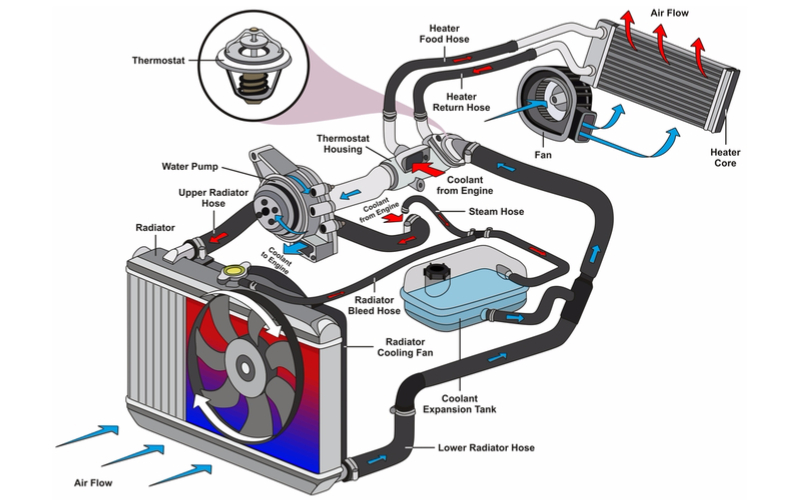How Heat Exchangers Work
Although there are many types of heat exchanges (even your air conditioning and heating units are heat exchangers), they essentially perform the same function: they take heat from one medium and transfer it to another medium.
Heat; i.e., thermal energy; is the movement of molecules in a substance. And, the transfer of thermal energy always flows in one direction: from hot to cold. Therefore, if you want to cool something, you must take the thermal energy away from that medium and dispose of it somehow. Conversely, if you want to heat something, you must take the thermal energy and transfer it to the medium you wish to heat.
There are three main ways in which heat is transferred between mediums:
- Radiation: The sun is a great example of heating an object with radiation. The sun radiates energy across space in the form of electromagnetic radiation. This radiation hits the earth and causes the molecules it hits to move faster; thus, gain thermal energy.
- Conduction: Conduction is how heat is transferred through a solid object. When one part of a solid object is heated, the other parts are colder. This means that heat will move to these colder areas in the solid; as heat always moves from hot areas to colder areas. The molecules in the solid object that are heated, vibrate faster; and this vibration causes neighboring molecules to have vibration imparted to them.
- Convection: Convection is the movement of heat through a fluid or gas. Hot fluid and gase rises, trying to move from a hot area to a cooler one. As the fluid or gas moves through a space, the heat is then imparted to whatever it comes in contact with.
Heat exchangers use all three types of heat transfer to a greater or lesser degree to perform their functions.
Vehicles: An Example of a Ubiquitous Heat Exchanger
The cooling of a car example is a good example of a heat exchanger we all use every day. Most cars are water cooled; i.e., they use water (and a mix of chemicals) to transfer heat away from the engine. The cooling process occurs in the following way:
- The combustion of gases in the motor’s cylinder produces radiant energy. This radiant energy is transferred to the metal of the cylinder and engine.
- Next, conduction takes over; and, heat is transferred via conduction through the metal of the engine block.
- Convection is next to occur as the water based coolant in contact with the engine surfaces takes on the heat energy.
- When the heated coolant moves to the cars radiator, it imparts its heat to the tubes in the radiator through convection.
- Conduction then carries the heat through the radiator tube walls.
- As cooler air passes over the radiator tubes, heat is transferred to this cooler air via convection; as well as some direct radiation.
From this example, we can see that all three types of heat transfer are important to the efficient operation of heat exchangers.
Take our Challenge!
If you are a business with heat exchangers, we invite you to take our challenge. To do this, simply send us a heat exchanger, or component of a large exchanger, and we will clean it better than your current cleaner. Companies who take this challenge are consistently shocked at how clean we get their devices. For commpanies that have large cleaning needs, we are willing to clean one device for free!
We want to win your trust by proving our cleaning ability with results. There is a reason we are trusted by so many companies and United States Military; we deliver results. If you have been settling for heat exchanger cleaning that doesn’t get a device truly clean, take our challenge. Let us prove to you just how clean we can get your exchanger.
Contact Us for a Free Consultation
Copyright © Flushing Services 2026
